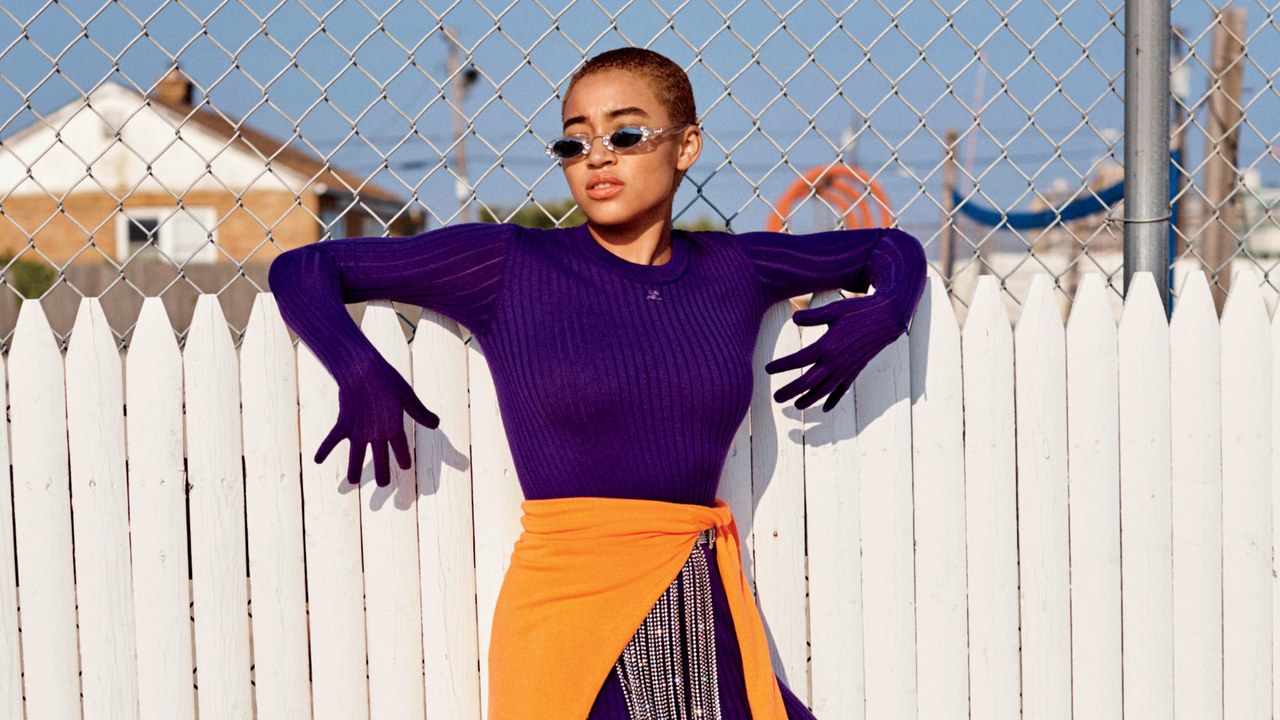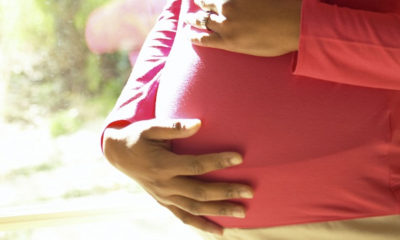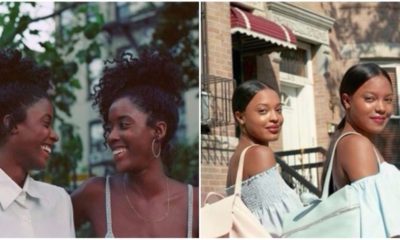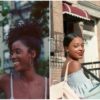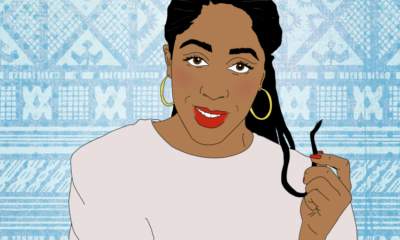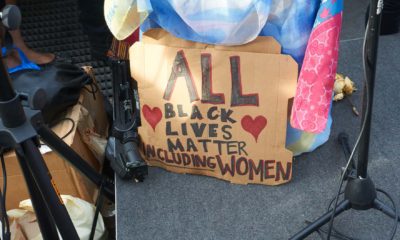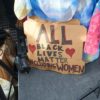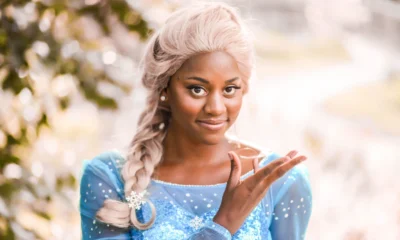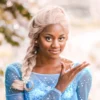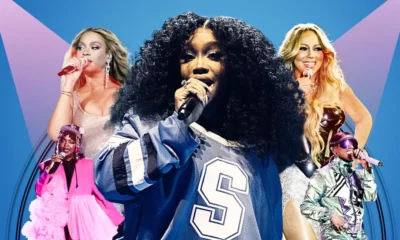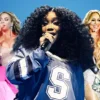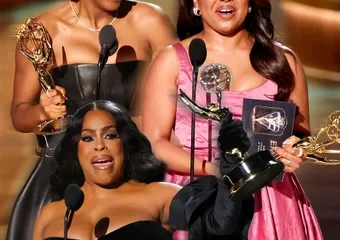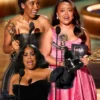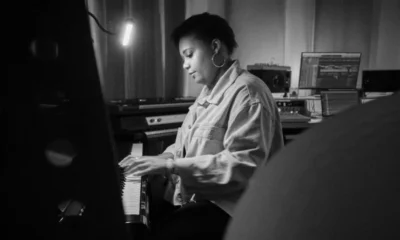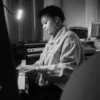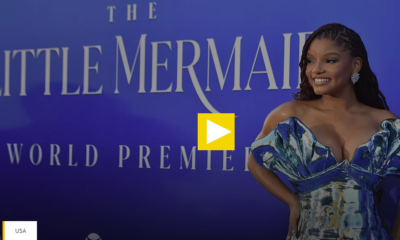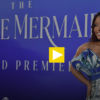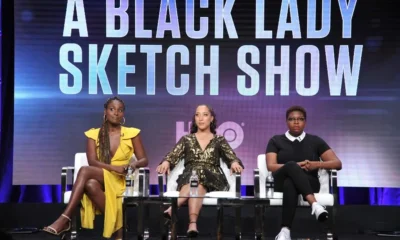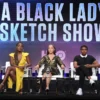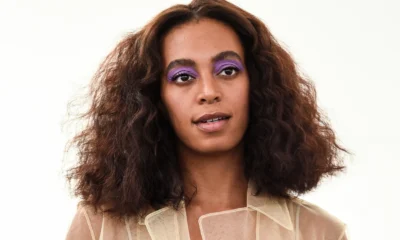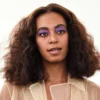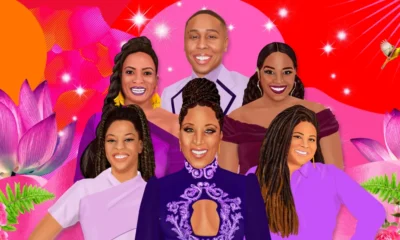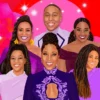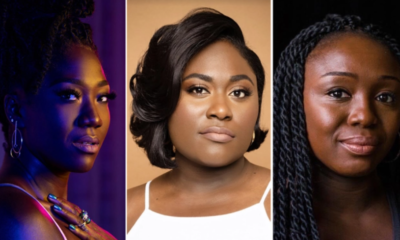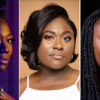Black Women in Entertainment
Amandla Stenberg and Janelle Monáe Open Up About Racism and Where They Were During the Election
Her name (literally) means power. At 18, Amandla exerts a rare, discerning on-screen force that is changing the movie-making industry from the inside out, one riveting role after another. Each character she breathes life into seems touched by something out of this world. Offscreen, she’s steadily bringing visibility to the unseen through her work with the Art Hoe Collective, which is led by gender-nonconforming teens and young adults determined to create space for queer artists of color. Who better to unpack the enigma that is Amandla Stenberg — a baby-faced ass-kicker, a dystopian hero, a romantic leading lady, a Tumblr phenom (who could forget her formidable rebuttal to cultural appropriation via “Don’t Cash Crop My Cornrows”?!), a comic creator, an aspiring film director (her first self-directed short for Teen Vogue is not to be missed!), and so much more — than Janelle Monáe, who traffics high concepts onto mainstream stages from the Oscars to Madison Square Garden. Together, they explore how an epic sister-friendship got off the ground, how they make art (and joy) in a world that would prefer they remain silent, and what it takes to become an icon.
AMANDLA STENBERG: Janelle frigging Monáe!?
JANELLE MONÁE: Hi, sweetie. You know I love, love, love you. First: pronouns! I want to make sure that I’m being respectful of how I’m referring to you. I know that the way we view ourselves and how we want to be addressed can change depending on where we are in life.
AS: I love that you asked me! Thank you. I have felt at times that she/her pronouns weren’t entirely fitting, but I’ve never felt uncomfortable with them. It’s more important for me to open up that conversation around pronouns and how gender itself is a construct that doesn’t make much sense in our society.
JM: Got it. I remember seeing you for the first time in Colombiana, and then, like many people, I was drawn to your character in The Hunger Games as Rue. I’m a huge sci-fi nerd, so just seeing this little black girl in a dystopian world being a hero for an oppressed community, I was intrigued! The way you embodied this character felt like you were mature enough to understand how important she was to the movie but also how important the Rues all over the world are to our society.
AS: That’s one of the best compliments that I’ve received! I remember we saw each other at the Tyler, the Creator show; we took a picture with Solange. You were wearing a jacket that said “black girl magic” on it, and I flipped out.
JM: Me, too! I was like, I am right between you and Solange, two people who are the epitome of black girl magic! I saw you later on, and you had just shot Everything, Everything, which, by the way, you are incredible in. The original story was written by a black woman [NicolaYoon], and your director [Stella Meghie] is also a black woman. What was going through your mind as you were considering the role?
AS: I kind of wrote it off initially because I figured it was one of those instances where I was receiving a script for a YA romance project that was intended for a white actress. I thought maybe they’d float the idea of casting it in a more diverse manner but that ultimately it wouldn’t end up going that direction, because that’s happened to me a lot. Then I realized that this project was based on a book written by a black woman and that the casting was intentionally diverse. I’d never seen a story like this made for an interracial couple. I’m not someone who generally has a pop or mainstream sensibility, but I see the incredible power of infiltrating these larger movies that show a lot of people who we are and how diverse and beautiful our community is. I thought it would be really powerful to see a black girl [lead] character like Maddy who is joyous and creative and dimensional specifically marketed to teenagers and …
Please read original article- Amandla Stenberg and Janelle Monáe Open Up About Racism and Where They Were During the Election



